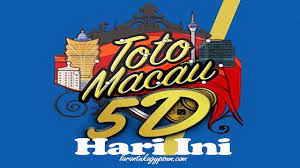N'ebe ntụrụndụ na ntụrụndụ, few establishments command as much intrigue and fascination as toto macau. These vibrant hubs of excitement lure in millions of visitors each year with promises of thrilling games, luxurious amenities, na ohere tie ya ọgaranya. But beyond the glitz and glamour lies a multifaceted industry with a rich history, complex dynamics, and profound cultural significance. Ke ibuotikọ emi, we embark on a journey to explore the captivating world of casinos, shedding light on their inner workings, societal impact, and enduring allure.
Mmalite nke cha cha:
To understand the modern casino landscape, one must delve into its historical roots. Echiche nke ịgba chaa chaa malitere azụ ọtụtụ puku afọ, with evidence of early games of chance found in ancient civilizations such as Mesopotamia, China, and Egypt. Oge n'aga, these rudimentary forms of gambling evolved into more structured activities, eventually culminating in the establishment of the first casinos in Europe during the 17th century. From the opulent gambling houses of Venice to the saloons of the American Wild West, casinos have long been intertwined with human culture, serving as hubs of social interaction, ntụrụndụ, na, n'ezie, ndaisi.
The Evolution of Casino Games:
Central to the allure of casinos are the diverse array of games they offer, each with its own unique blend of skill, atụmatụ, na ohere. From the classic allure of roulette and blackjack to the adrenaline-fueled thrills of slot machines and poker, casinos cater to a wide spectrum of preferences and play styles. Ọzọkwa, the advent of online casinos has further expanded the reach of these games, allowing players to enjoy their favorite pastimes from the comfort of their own homes. This intersection of tradition and innovation continues to drive the evolution of casino gaming, ensuring that there is always something new and exciting to explore.
The Socioeconomic Impact of Casinos:
E wezụga ọrụ ha dị ka ebe ntụrụndụ, casinos wield considerable influence on the socioeconomic landscapes of their host communities. N'ọtụtụ ọnọdụ, casinos serve as catalysts for economic development, creating jobs, attracting tourists, and generating revenue for local governments. Otú ọ dị, this economic boon often comes with a caveat, as casinos can also exacerbate issues related to addiction, crime, and inequality. Balancing the benefits and drawbacks of casino development requires careful consideration of regulatory frameworks, responsible gaming initiatives, and community engagement efforts.
Psychology nke Ịgba chaa chaa:
At the heart of the casino experience lies the psychology of gambling, a complex interplay of risk, ụgwọ ọrụ, na isi na-ezighi ezi. From the euphoria of a winning streak to the despair of a losing streak, the emotional rollercoaster of gambling can have profound effects on individual behavior and decision-making. Understanding these psychological mechanisms is crucial for both players and casino operators alike, as they strive to navigate the fine line between entertainment and addiction. By promoting responsible gaming practices and fostering a supportive environment, casinos can help mitigate the potential harms associated with excessive gambling.
Mmechi:
Na ngwụcha, casinos occupy a unique and multifaceted position within the tapestry of human culture. As bastions of excitement and intrigue, they captivate the imagination and beckon adventurers to try their luck against the odds. Ma, beneath the surface lies a complex ecosystem shaped by history, aku na uba, na akparamaagwa. By embracing responsible practices and fostering inclusive environments, casinos can continue to thrive as vibrant hubs of entertainment while minimizing the potential risks associated with gambling. Ma ị bụ onye ịgba chaa chaa nwere ahụmahụ ma ọ bụ onye bịara ọhụrụ na-achọ ịmata ihe, the world of casinos offers a wealth of experiences waiting to be explored.

